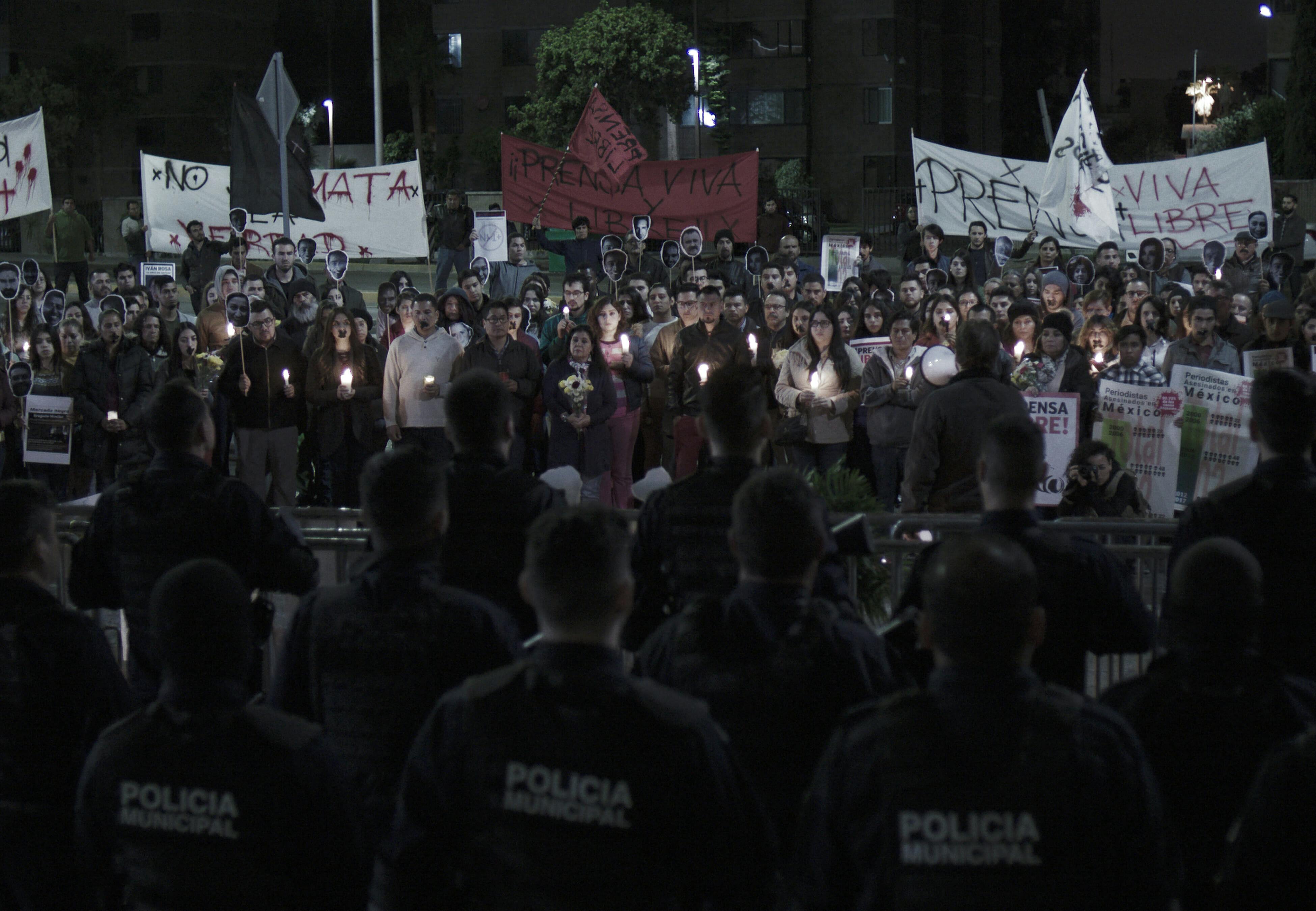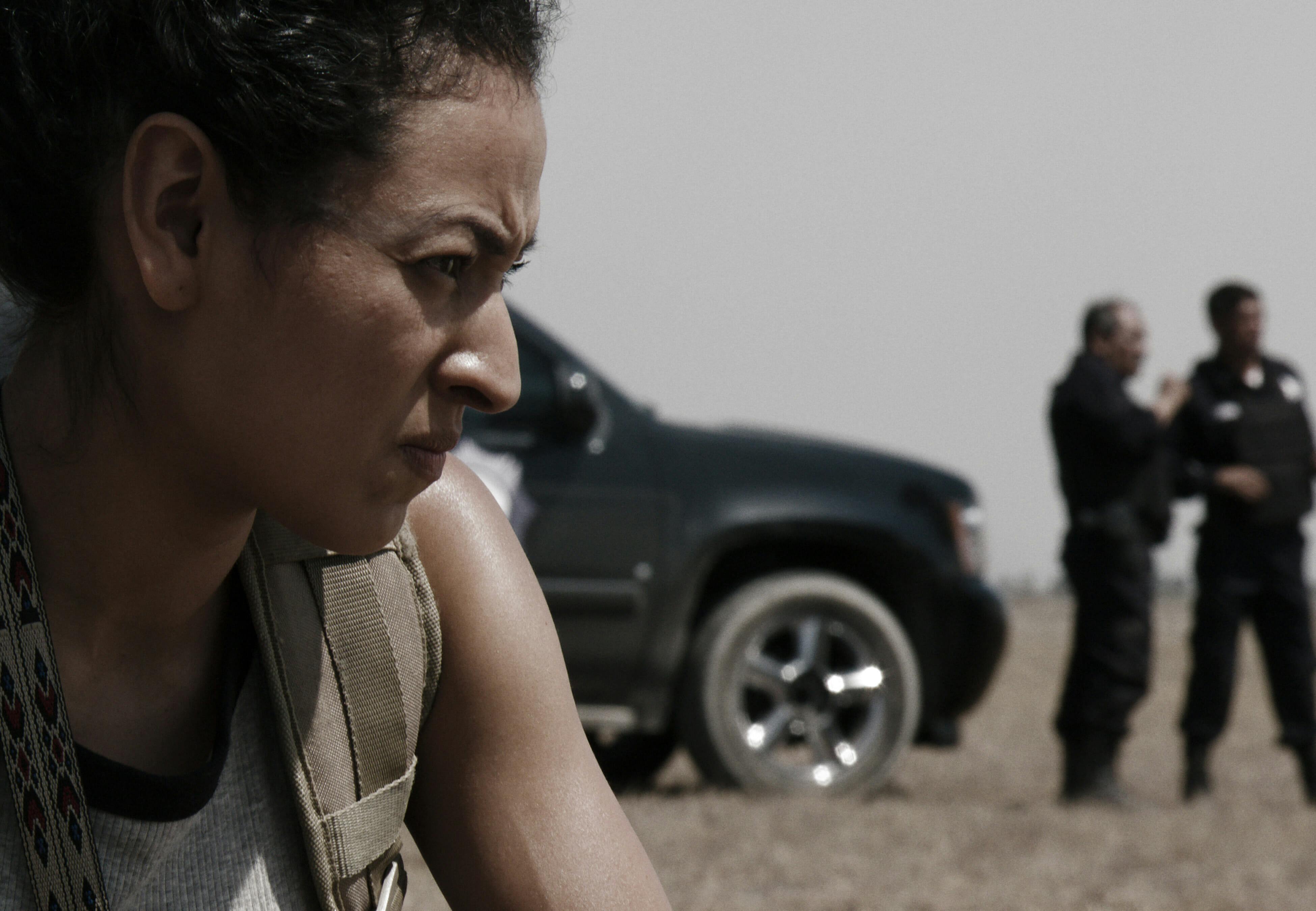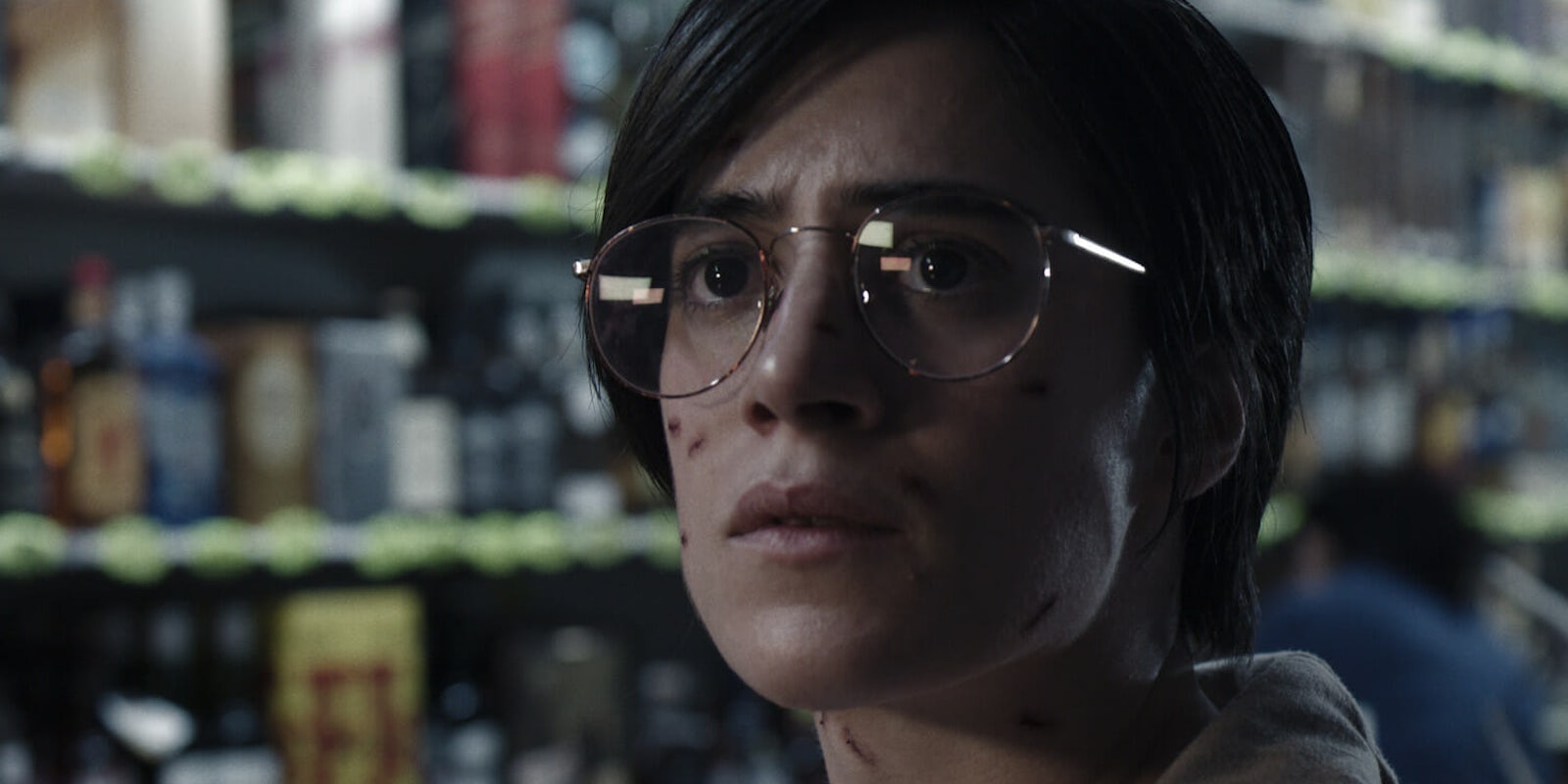Television about journalists in the United States is simply not very good.
Cheesy odes to the dignity of the news (The Newsroom) and steamy tales of reporters sleeping with sources (House of Cards) dominate dramatized tales of the profession. But it turns out the problem wasn’t journalists as subject matter; it’s that the stories were about the wrong journalists.

RELEASE DATE: 4/5/19
CREATORS: Zayre Ferrer, Daniel Posada
STREAMING: Netflix
A prestige drama take on Tijuana, Mexico through the eyes of the city’s journalists.
Tijuana, a new hour-long drama from Netflix and Univision, wastes no time telling you why this story is different. Mexico, we learn before the opening credits, is the most dangerous place in the world for journalists. To reinforce the point, we begin the series with a vigil for a slain political reporter: If you want to pick a particularly lethal line of work, political journalism in Tijuana might be it.
Though the subject matter of Tijuana is reminiscent of House of Cards—journalists and the politicians who try to kill them—the feel of the show is much closer to Shawn Ryan’s 2002 masterpiece The Shield. A fast vérité shooting style hides the lower budget and gives the show immediacy. The pulse-pounding circumstances leave you feeling like any character could meet their death behind a closed door or down a dark alley. If you bumped the budget and had a few more familiar faces, this is the kind of show we would call a prestige drama in America. If Diego Luna or Gael Garcia Bernal were in leading roles, you could easily imagine a bidding war between FX and Showtime for the streaming rights.

Despite the palpable influence of American prestige drama, this show still has a distinctly Mexican feel. Mexican TV veteran Daniel Posada (El Chapo) created the show alongside younger writer Zayre Ferrer, and it is obvious that these writers care about and understand the challenges facing their country. So much American content shot in Mexico focuses on the border and/or the cartels; it’s all Sicario-style shots with barren deserts and decadent mansions. Here, we are offered a far more authentic and interesting view of Mexico, and one that builds out a full picture of the political, social, and criminal life of Tijuana. Yes, we see the seedy underworld of the city, but we also glimpse the rooftop bars, classy restaurants, sports stadiums, and clubs that make Tijuana a tourism destination for Mexicans and Americans alike. Just as American procedurals shows us the highs and lows of cities like New York and Los Angeles, Tijuana shoots its title city with refreshing respect.
This respect is anchored in the deceased character of Ivan Rosa, the revered journalist who is dead to begin with. Rosa was a co-founder of the newspaper Frente Tijuana, where our main characters work, and his ghost lingers over the proceedings. The other catalyst for the events of Tijuana is Eugenio Robles (Roberto Mateos), a populist politician whose best American comparisons would be Alexandria Ocasio-Cortez or Randy “Ironstache” Bryce. Robles is a blue-collar worker who decides to run for governor of Baja California (a state in Mexico), without the support of big business or the cartel. Suffice it to say, you get the sense early on that Robles is headed the way of Rosa.

These marked men act as the moral compass of Tijuana, serving as beacons for younger characters who haven’t yet had their idealism beaten out of them. Gabriela (Tamara Vallarta), an up-and-coming political reporter whose career takes off after a tragedy; Malu (Tete Espinoza), a photojournalist chasing down the story of over a dozen dead migrants; and Andres (Ivan Aragon), Ivan’s nephew who is determined to make a documentary about his uncle’s death, are young, hungry journalists learning just how far they will go for the truth. Antonio (Damián Alcázar) and Federica (Claudette Maillé) are the paper’s more cautious journalistic elder statesmen who have learned the hard way that too much bravery gets you killed, losing loved one after loved one along the way.
In between these two groups is Lalo (Rolf Peterson), a reporter edging toward middle-age, teetering on the edge of cynicism. He is neither completely embittered nor is he an idealistic doe in the woods. His more complicated perspective results in the show’s strongest performance. Even when he is just smoking a cigarette and shaking his head ruefully, we feel the weight of the world on his shoulders.
On its surface, season 1 of Tijuana appears to be a whodunnit linking murders to a powerful underground operator named Muller. As with any great exploration of corruption, you slowly realize that the fate of one evil man won’t cure the rot that permeates society. Strike him down, or out him in the press, and a half-dozen more will rise in his place.
From the pilot, it is apparent that there is a grand struggle at work in this series beyond what we see episode-to-episode or even season-to-season. While bogeymen and big bads like Mueller will emerge, the true conflict is between these courageous reporters and the gnawing cynicism and hopelessness that grows in the face of years of rampant corruption and dead comrades.
Tijuana isn’t perfect. The show has a tendency to fall into standard procedural beats with too-easy discoveries of evidence and obviously corrupt minor villains. One supporting player’s callous, aristocratic villainy is so obvious, down to his greasy hair, that even the broadest telenovela might find him a bit arch. That being said, this show is easily a peer of shows with more star power and resources like House of Cards or later seasons of True Detective, with tons more heart and thoughtfulness than the latter-day versions of these shows have been able to muster.
Despite some minor shortcomings, Tijuana stands nicely alongside American prestige procedurals that aim to interrogate the relationship between corruption and institutions meant to provide accountability. Given the unique point of view and the compelling subject, American audiences won’t be able to say Tijuana is quite like any show they’ve seen before.
Still not sure what to watch tonight? Here are our guides for the absolute best movies on Netflix, must-see Netflix original series, documentaries, docuseries, and movies.
Need more ideas? Here are our Netflix guides for the best war movies, documentaries, anime, indie flicks, true crime, food shows, gangster movies, Westerns, and movies based on true stories streaming right now. There are also sad movies guaranteed to make you cry, weird movies to melt your brain, and standup specials when you really need to laugh. Or check out Flixable, a search engine for Netflix.


